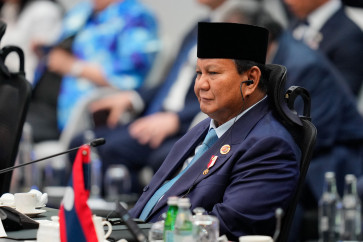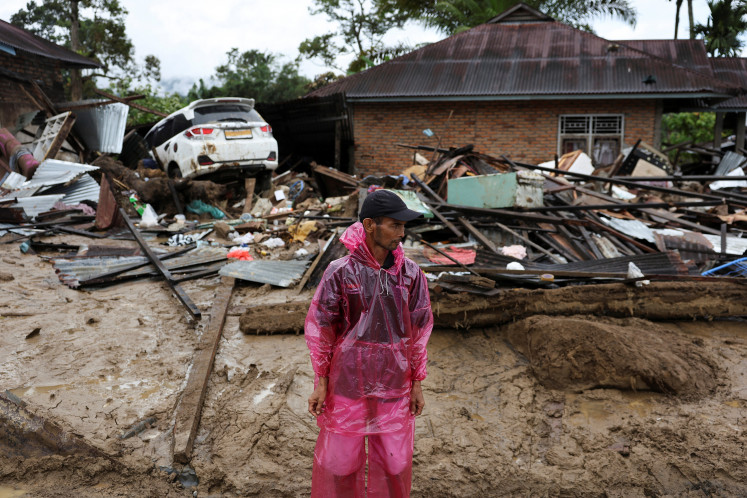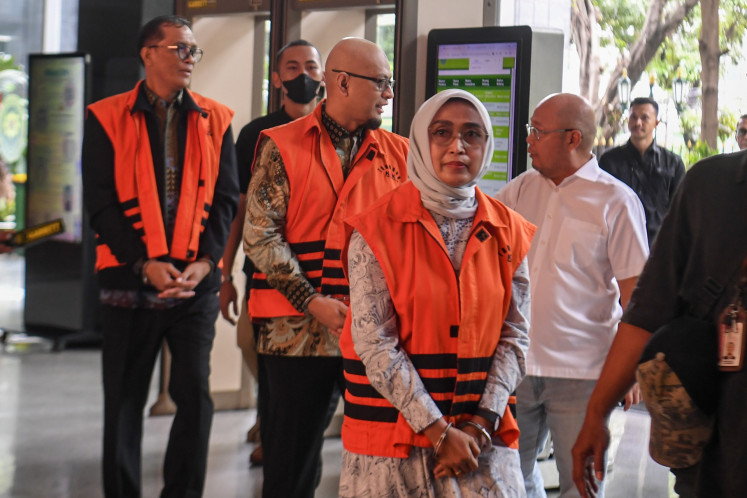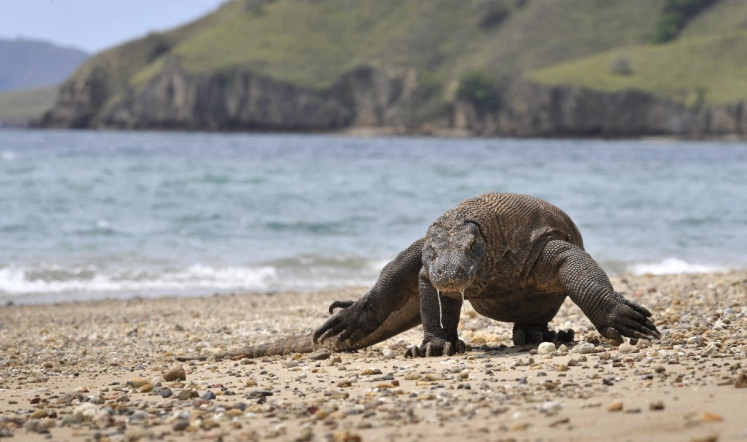Popular Reads
Top Results
Can't find what you're looking for?
View all search resultsPopular Reads
Top Results
Can't find what you're looking for?
View all search resultsContainment begins as H7N9 spreads to Taiwan
Taiwan has its first confirmed case of H7N9 avian influenza, the Central Epidemic Command Center (CECC) announced yesterday
Change text size
Gift Premium Articles
to Anyone
Taiwan has its first confirmed case of H7N9 avian influenza, the Central Epidemic Command Center (CECC) announced yesterday.
The patient is a 53-year-old male Taiwanese citizen who had worked in China's Jiangsu province.
The CECC said that the patient, who returned to Taiwan from Shanghai on April 9, is currently in serious condition and is being treated in a negative-pressure isolation room.
One hundred and thirty-nine people who have come into contact with the man have been contacted by the CECC for health checks and follow-up observations. Among them are three health care workers who developed symptoms of upper respiratory infection.
CECC Commander-in-Chief Chang Feng-yee said that the centre has reported the case to the World Health Organization through the International Health Regulations (IHR) Focal Point system as well as through its contact point in China, in accordance with the Cross-strait Cooperation Agreement on Medicine and Public Health Affairs.
'The CECC will not make the number of the flight that the patient took to return to Taiwan public because he did not show any signs of infection when he entered Taiwan, or on the two days following his arrival,' Chang said.
Health Minister Chiu Wen-ta said that special clinics for H7N9 and the negative-pressure isolation rooms in 22 hospitals listed as disease control centre will be opened in response to the possible outbreak of the strain in Taiwan.
According to the CECC, the patient is a hepatitis B carrier with a history of hypertension and had been traveling between Jiangsu province's Suzhou City and Taiwan before contracting the virus.
He was in Suzhou from March 28 to April 9 and had not been exposed to birds or poultry, or consumed undercooked poultry or eggs, the CECC said.
The patient developed a fever, began sweating profusely and suffering fatigue on April 12. He was hospitalised for a high fever on April 16. He was incubated due to respiratory failure and placed in the negative-pressure isolation room in the hospital's intensive care unit on April 20.
The CECC said that the National Influenza Center in Taiwan confirmed the strain of the disease and completed the genome sequencing of the virus yesterday morning.
Chang said that the CECC has continued to strengthen surveillance and fever screening of travelers arriving from China, especially from Shanghai, Jiangsu, Zhejiang, Anhui, Beijing, Henan and Shandong.
'Travelers visiting China should practice good personal hygiene, avoid visiting traditional markets with live poultry, and consume only well-cooked poultry and eggs,' Chang said.
According to the CECC, there are currently 108 confirmed H7N9 cases in China, including 22 deaths since the first case was reported on March 31.
Deputy Agriculture Minister Wang Cheng-teng said yesterday that if more local cases are found, new regulations prohibiting the slaughter of live fowl in traditional markets in Taiwan proper might take effect before the scheduled date of June 17.
Wang said that currently the Council of Agriculture (COA) plans to stick to the existing timetable for the launch of the new rules.
'Right now the COA will focus on doubling the number of random inspections in migratory birds, fowl and slaughterhouses before finally launching the new regulations,' said Wang










